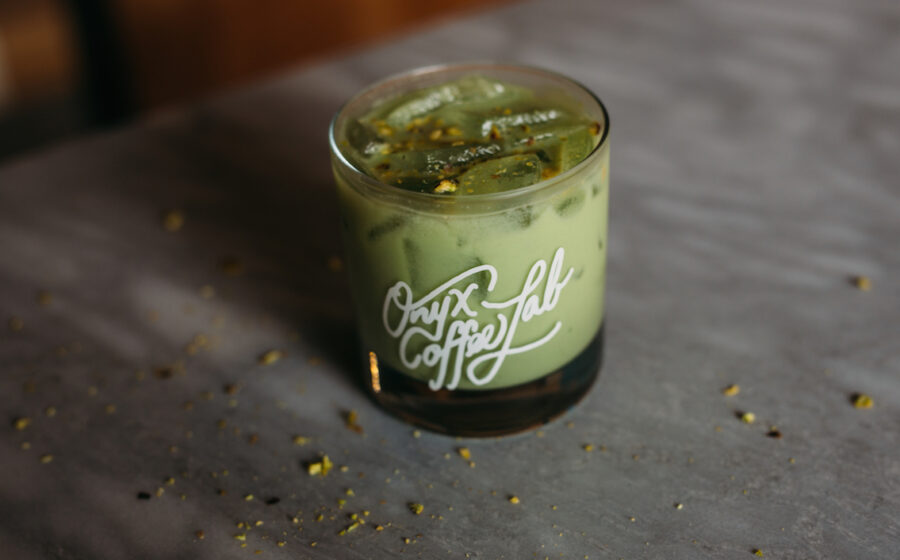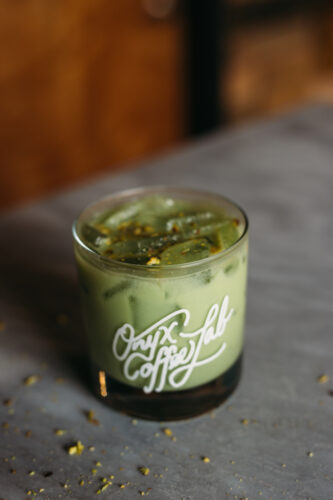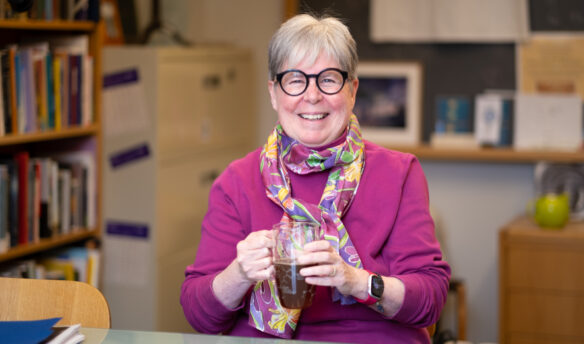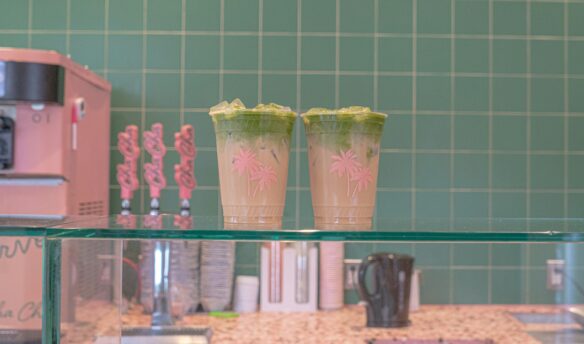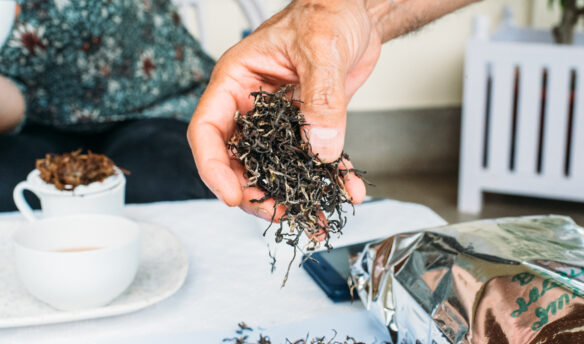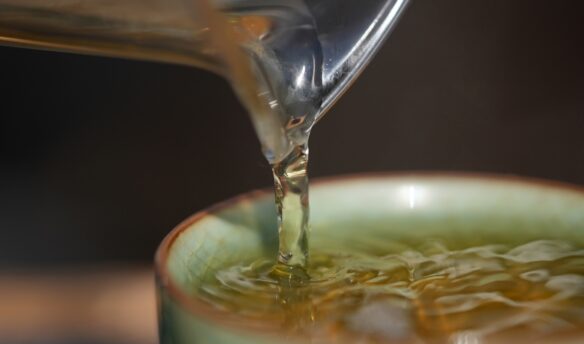[A]t Onyx Coffee Lab we like to think of our seasonal menu as a set of drinks designed to engage customers in thinking about coffee and tea as more than just beverages or vehicles for caffeine. We want to take flavors and present them in different or interesting ways in regards to how customers relate to the drinks. It’s a way to play on the inherent flavors and characteristics of the coffee we roast, but it’s also a chance to feature tea and other ingredients we love in a fresh context. Overall, we take the drinks on our seasonal menu very seriously. For our regulars, these drinks might represent a laid-back weekend, spent enjoying something different. They can also be a gateway into specialty coffee for non-specialty drinkers.
The way our seasonal menu takes shape is Jon Allen, co-owner and green-buyer for Onyx, and Brendon Glidden, head of research and development, brainstorm concepts, find inspiration, and explore flavors and how they relate to our current coffee lineup. We then reach out to other local artisans and makers. We don’t want to pretend to be tea or cocktail experts, but rather we want to draw on cool things other people in our area are doing.
For this fall menu we’ve worked with Moniker Ferments, as we typically do, and are serving a hopped kombucha made with sencha tea and Cascade hops on tap. We partnered with Crave, a local baker, for marshmallows and graham crackers for our S’more Gibraltar (our most popular seasonal drink ever). This fall menu features a harvest latte made with a locally made acorn squash, pumpkin, and spice syrup from Pink House Alchemy. We also have two cold coffee drinks. The Coffee Phosphate is inspired by old school soda fountains and the idea of creating a complicated array of sensory experiences. It’s bubbly, bitter, sweet, creamy, and mouthwatering. The aroma and the taste are quite different from one another, adding more complexity. The GOB (named for one of our favorite shows, Arrested Development), was created with the idea of being a “comfort drink,” but is still unique for coffee. It’s a sweet breakfast and coffee all in one.
Rounding out the menu is a tea-based drink called the Matcha Lassi. This drink came out of an admiration and affinity for the wide range of unique flavors in Indian cuisine. A lassi is traditionally either a savory or sweet yogurt-based drink, most commonly sweet and paired with mango. We wanted to produce something unique to the lassi, while maintaining its tradition and culture.
There is something really interesting to us about cultured, fermented beverages. Dairy is a natural ingredient to experiment with in the café, and when you start thinking about soured milk beverages the lassi is the one that sticks out. Matcha gives it green tea flavor and a rich, beautiful color. Tea based drinks also tend to be light in body, with tea-like even a descriptor for light-bodied coffees. So, to think about serving a super heavy-bodied tea drink is not only out of the box, but it’s approachable and delicious. The unexpected fermented flavor gets balanced by familiar ones: vanilla, and cardamom, which we know well from chai.
For the matcha tea we partnered with our friends at Savoy Tea Co., owned and run by Bill and Tina Beyer. Together they boast not only multiple certifications, but hearts that beat tea. They recommended their house matcha blend for a matcha latte we featured last winter, and we liked it so much we wanted to use it again. Happily, it found a great partner in the lassi. The matcha comes from a tea garden in the mountains surrounding Kyoto that has been family-owned for 300 years.
We make our Matcha Lassi by shaking two ounces of Straus Family Creamery non-flavored yogurt, two ounces of cold water, a dash of cardamom bitters, one teaspoon of matcha, and a half-ounce of vanilla syrup from Pink House Alchemy. Then we shake, strain over ice into an old fashioned glass, and garnish the lassi with cracked pistachios. Overall the drink has the creaminess and slightly sour flavor of yogurt, a sweetness to balance, and a savory, herbaceous character from the matcha, all rounded out by the traditional savory flavors of pistachio and cardamom.
Indian coffees don’t tend to be featured at specialty coffee shops in the States. This drink is a way for us to feature a region that is under-represented and also draw in some of the distinct flavors in Indian cuisine, which, outside of chai, seem to be under-utilized in the specialty café realm. Offering a sense of adventure through a tea drink is something we are excited about.
—Andrea Allen co-owns Onyx Coffee Lab, with three locations in Northwest Arkansas.



